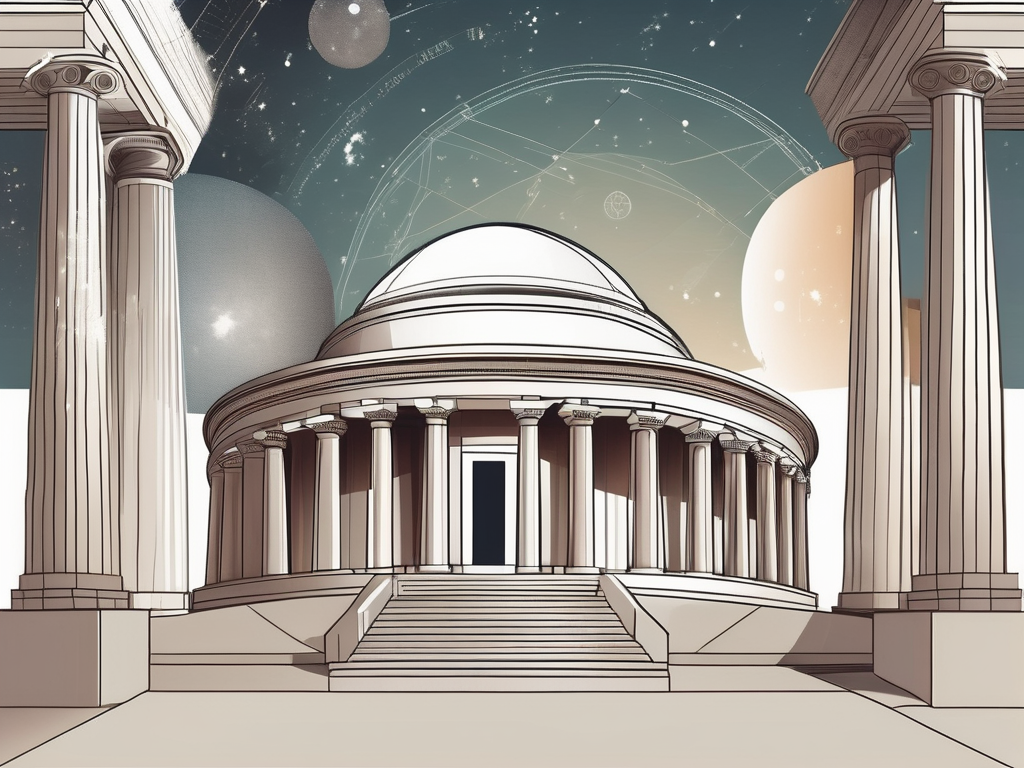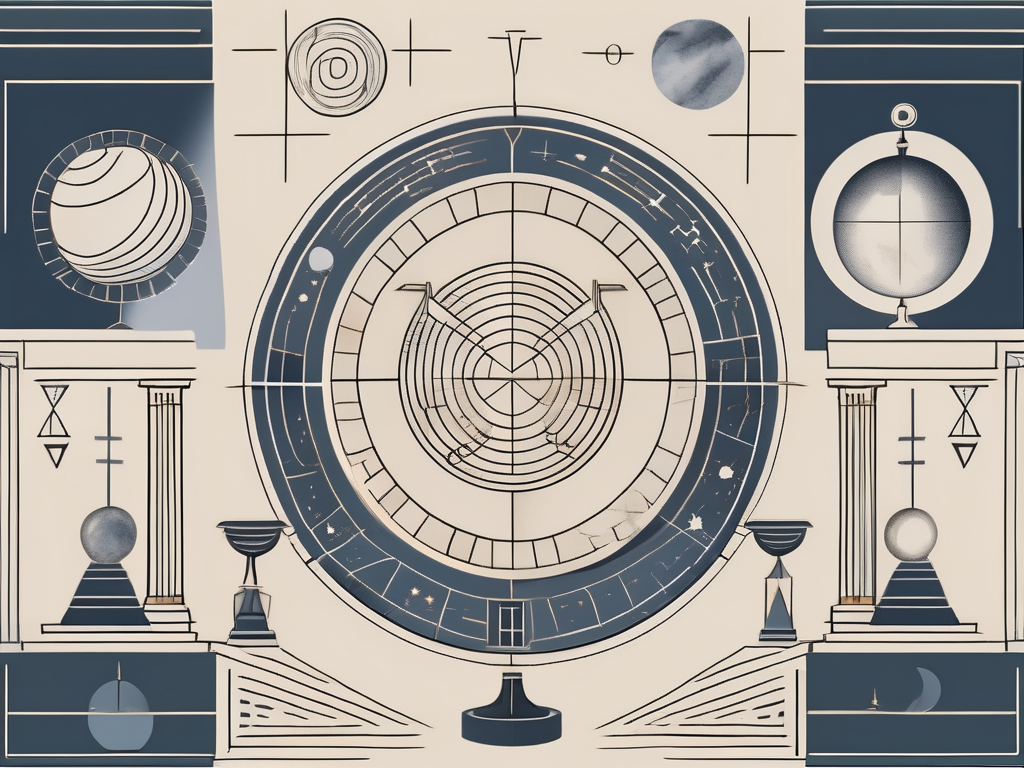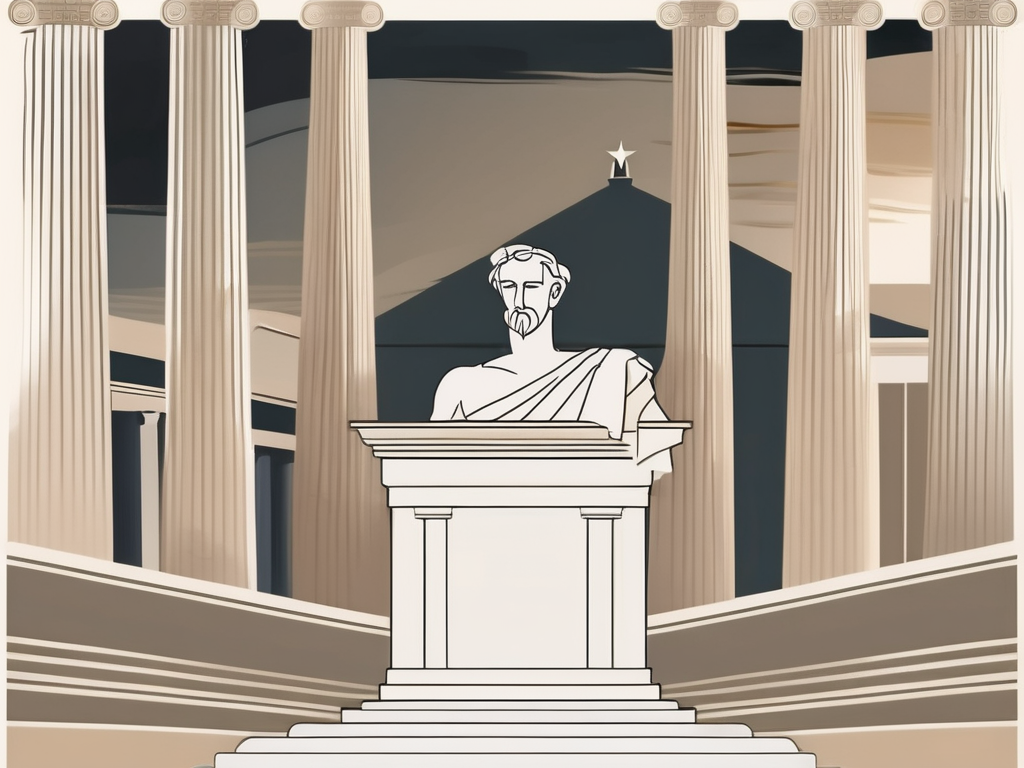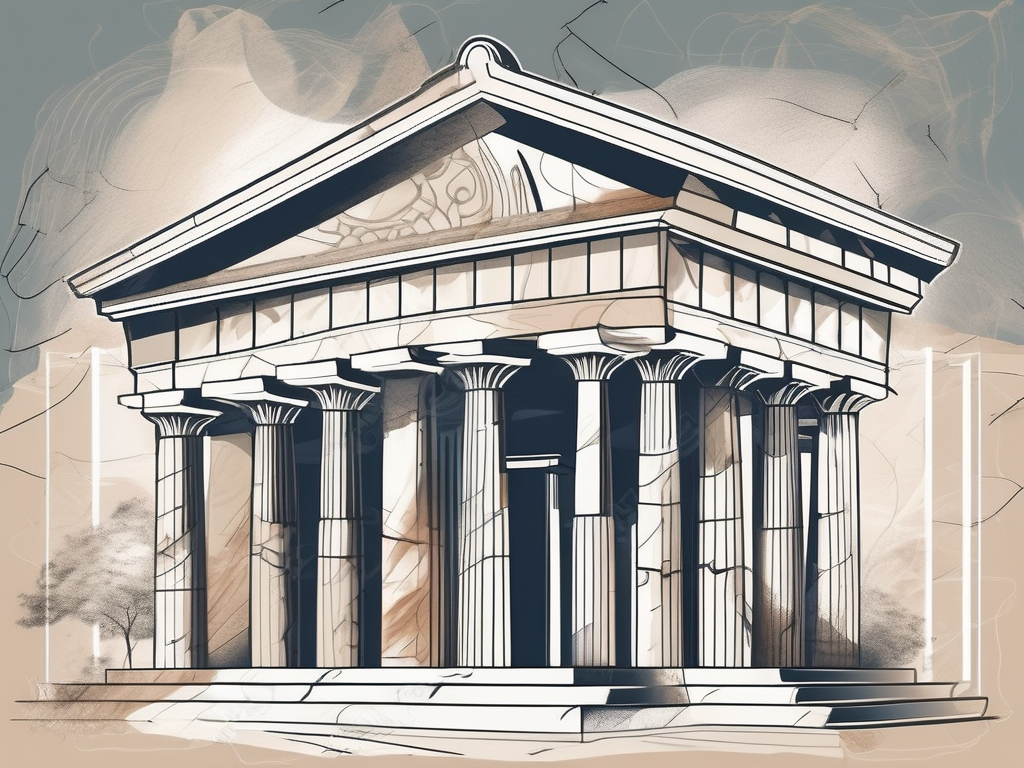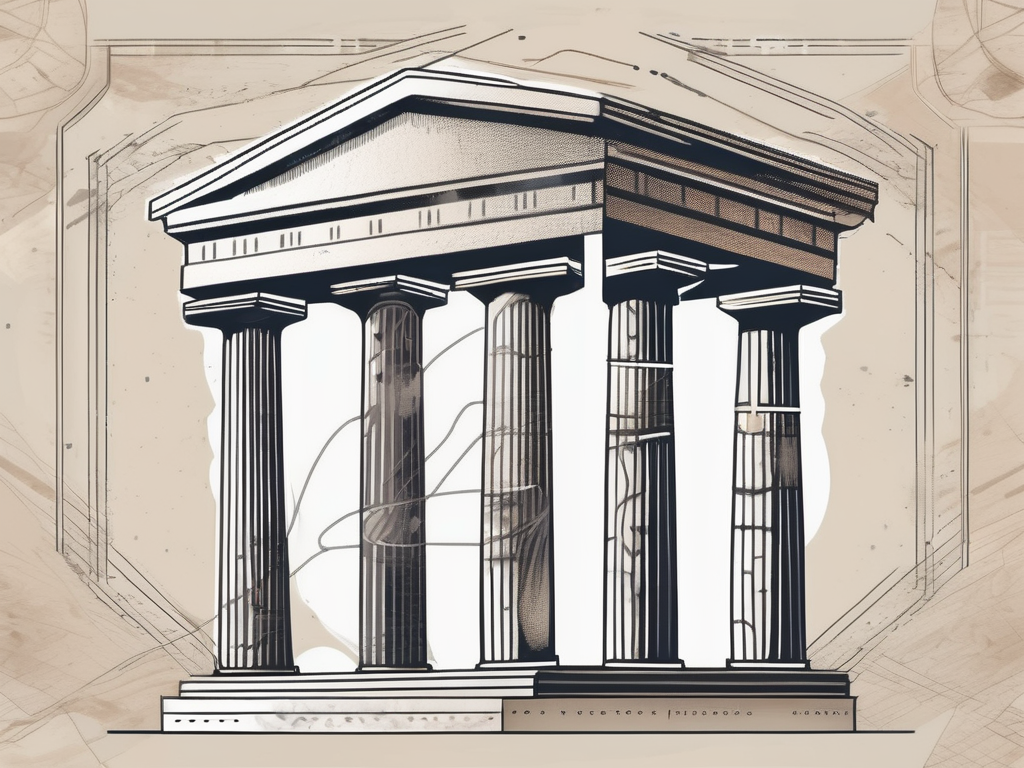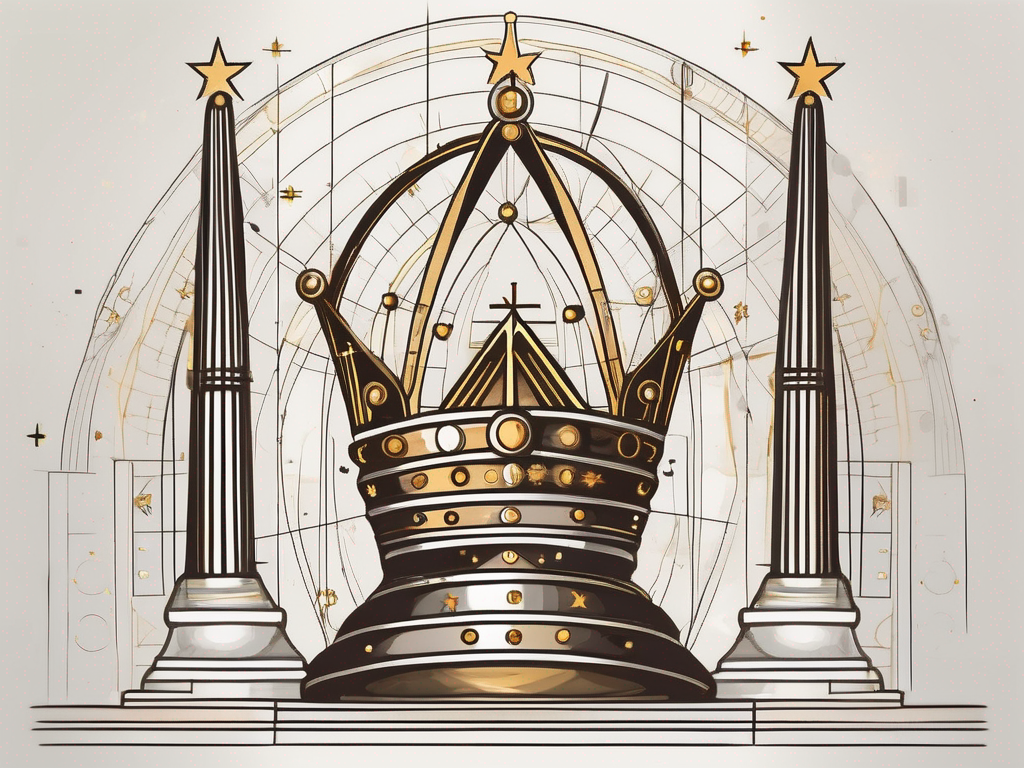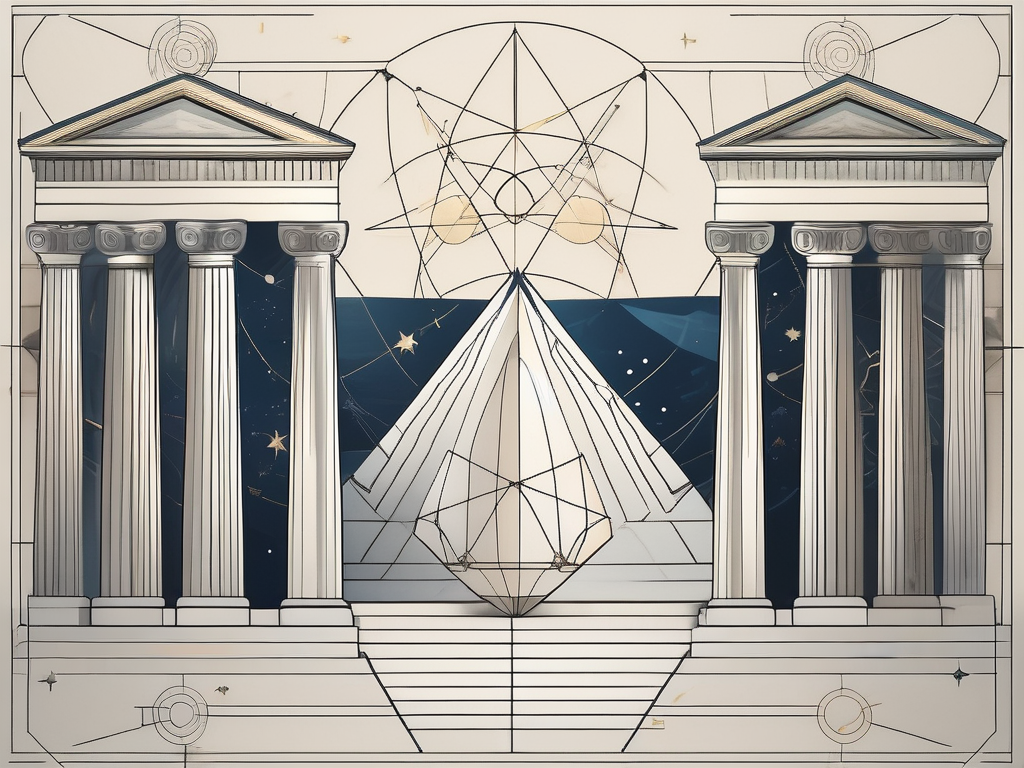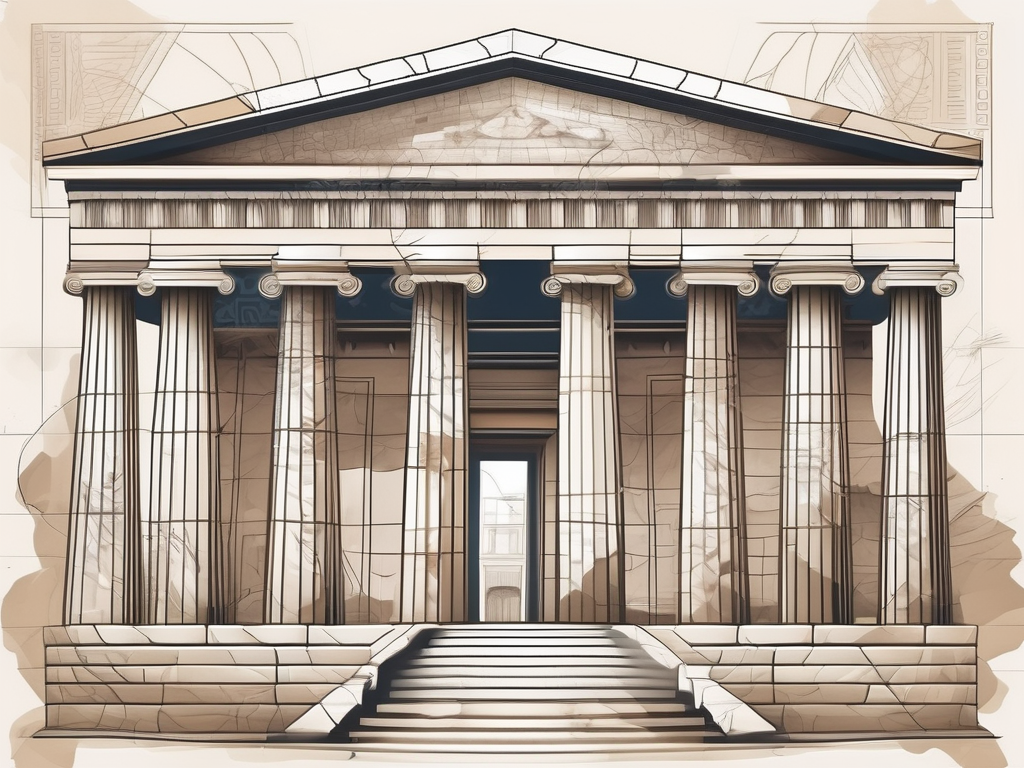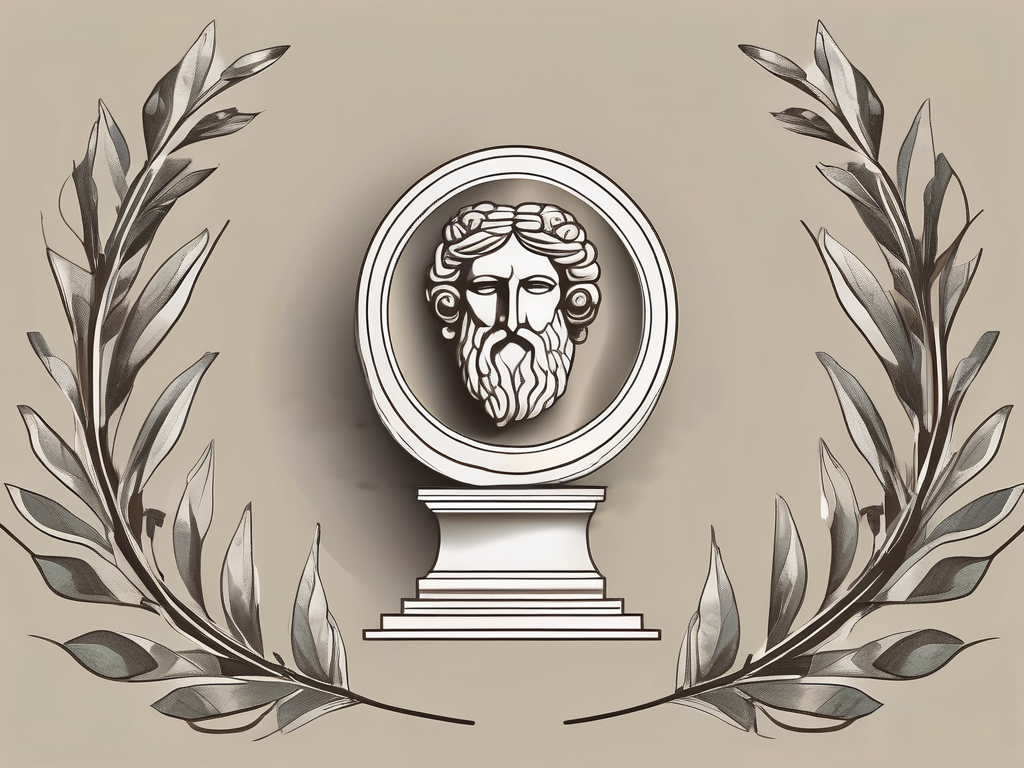Eudoxus of Cnidus was a renowned Greek philosopher whose legacy continues to captivate scholars and thinkers to this day. His contributions to various fields such as mathematics, astronomy, and philosophy have left an indelible mark on the development of human knowledge. In this article, we delve into the life, beliefs, and achievements of Eudoxus, shedding light on his remarkable intellectual journey and exploring his lasting influence.
Understanding Eudoxus: The Man and His Philosophy
Eudoxus’ journey began in his early life and education. Born in the ancient city of Cnidus, he received a thorough education that laid the foundation for his later philosophical pursuits. His insatiable curiosity and passion for knowledge propelled him to dive deep into the realms of thought and reason.
As a child, Eudoxus was captivated by the wonders of the natural world. He would spend hours exploring the rugged landscapes surrounding his hometown, marveling at the intricate patterns of the stars above and the delicate balance of the ecosystems around him. These early experiences sparked a deep sense of wonder and a desire to understand the underlying principles that governed the universe.
Early Life and Education of Eudoxus
Eudoxus’ thirst for knowledge was apparent from a young age. Raised in a society that valued intellectual growth, he was exposed to a wide range of disciplines, including mathematics, astronomy, and philosophy. This diverse educational background would serve as the springboard for his groundbreaking contributions in the years to come.
At the age of fifteen, Eudoxus embarked on a journey to Athens, the intellectual hub of the ancient world. There, he studied under some of the greatest minds of his time, immersing himself in the teachings of renowned philosophers such as Plato and Aristotle. It was during this period that Eudoxus developed a deep appreciation for the power of reason and the importance of critical thinking.
Core Philosophical Beliefs and Teachings
At the core of Eudoxus’ philosophy lay a profound appreciation for the power of reason and observation. He believed that truth could be discovered through rigorous inquiry, and he dedicated himself to uncovering the fundamental principles that governed the universe. Eudoxus’ teachings emphasized the importance of empirical evidence, logic, and systematic thinking in unraveling the mysteries of existence.
One of Eudoxus’ most influential ideas was his theory of concentric spheres, which he used to explain the movements of celestial bodies. He proposed that the Earth was at the center of the universe, surrounded by a series of nested spheres that carried the planets, stars, and other celestial objects. This revolutionary concept challenged the prevailing belief in a geocentric universe and laid the groundwork for future advancements in astronomy.
Furthermore, Eudoxus believed in the power of mathematics as a tool for understanding the natural world. He saw mathematics as the language of the universe, a universal code that could unlock the secrets of existence. Eudoxus’ mathematical prowess allowed him to develop sophisticated geometric models and mathematical proofs, which he used to explain complex phenomena such as planetary motion and the behavior of light.
Throughout his life, Eudoxus sought to bridge the gap between theory and practice. He believed that philosophy should not exist in isolation but should be applied to everyday life. Eudoxus encouraged his students to engage in practical experiments and observations, urging them to test their theories against the realities of the world. This pragmatic approach to philosophy set him apart from many of his contemporaries and made his teachings highly influential.
Eudoxus and the World of Mathematics
Eudoxus’ mathematical prowess was truly exceptional, and his theories continue to hold relevance in the field to this day. He made significant contributions to geometric theory, revolutionizing our understanding of shapes, angles, and proportions.
Let’s delve deeper into Eudoxus’ contributions and explore the fascinating world of mathematics that he helped shape.
Contributions to Geometric Theory
Eudoxus’ exploration of geometric theory yielded groundbreaking insights. He introduced the concept of the method of exhaustion, a precursor to calculus, which allowed for the rigorous calculation of areas and volumes.
Imagine standing in front of a complex shape, unsure of how to measure its area or volume accurately. Eudoxus’ method of exhaustion provides a solution. By dividing the shape into an infinite number of smaller, simpler parts, Eudoxus paved the way for a more comprehensive understanding of geometry.
Through this method, Eudoxus demonstrated that even the most intricate shapes could be broken down into smaller, manageable components. By summing the areas or volumes of these smaller parts, mathematicians could now calculate the total area or volume of any shape, no matter how complex.
This breakthrough not only expanded our knowledge of geometry but also laid the foundation for future mathematical developments, including the concept of limits and the integral calculus.
The Eudoxian Theory of Proportions
Beyond geometric theory, Eudoxus developed the Eudoxian theory of proportions, which aimed to capture the inherent relationship between different magnitudes. He proposed a set of principles and rules that governed the comparison of quantities, laying the groundwork for the mathematical concept of ratios.
Imagine you have two quantities, such as the lengths of two different lines. Eudoxus’ theory of proportions allows you to compare these lengths in a meaningful way. By establishing a set of rules, Eudoxus provided a framework for determining whether one magnitude is greater than, equal to, or less than another.
These rules not only applied to lengths but also extended to other measurable quantities, such as time, weight, and temperature. Eudoxus’ theory of proportions provided a universal language for comparing and understanding different magnitudes, enabling mathematicians to make precise and meaningful comparisons in various fields of study.
By expanding our understanding of proportions, Eudoxus laid the groundwork for future mathematical developments, including the concept of ratios and the application of proportions in various scientific disciplines, such as physics and economics.
Eudoxus’ contributions to geometric theory and the theory of proportions have had a profound impact on the world of mathematics. His groundbreaking ideas continue to shape our understanding of shapes, angles, and magnitudes, providing a solid foundation for further mathematical exploration and discovery.
Astronomy According to Eudoxus
In his pursuit of knowledge, Eudoxus delved into the realms of astronomy, seeking to unravel the mysteries of the cosmos. His astronomical theories not only shaped our understanding of celestial bodies but also influenced subsequent generations of scholars.
Eudoxus, a Greek mathematician and astronomer who lived in the 4th century BCE, was fascinated by the movements of the celestial bodies. He observed the stars, planets, and other celestial objects with great curiosity, trying to make sense of their motions in the night sky. In his quest for knowledge, Eudoxus proposed a revolutionary planetary model that would forever change our understanding of the cosmos.
The Eudoxian Planetary Model
Eudoxus proposed a planetary model that postulated a system of nested spheres, each representing a celestial body. He envisioned the Earth at the center, surrounded by concentric spheres that held the Moon, the Sun, and the planets. By aligning these spheres in a specific way, he sought to explain the complex movements observed in the night sky.
According to Eudoxus, each celestial body was attached to a set of rotating spheres, which allowed them to move in intricate patterns. The outermost sphere held the fixed stars, which appeared to maintain their positions relative to one another. The next sphere contained the planets, which moved in their own circular paths but also followed the rotation of the outer sphere. This ingenious model attempted to explain the retrograde motion of the planets, where they appear to move backward in the sky at certain times.
Eudoxus’ planetary model was a significant step toward understanding the mechanics of the cosmos. Although simplified in light of subsequent discoveries, his model laid the groundwork for future astronomers to build upon. It provided a framework for explaining the movements of the celestial bodies and opened up new avenues of exploration in the field of astronomy.
Influence on Hellenistic Astronomy
Eudoxus’ ideas on astronomy had a profound impact on the development of the field during the Hellenistic period. His work not only advanced our understanding of the cosmos but also shaped the trajectory of scientific inquiry for centuries to come.
During the Hellenistic period, Eudoxus’ theories were further refined and expanded upon by other astronomers, such as Callippus and Aristotle. They built upon his ideas and incorporated new observations to create more accurate models of the celestial motions. Eudoxus’ influence can be seen in the works of later astronomers, including Ptolemy, who developed the famous geocentric model of the universe.
Eudoxus’ contributions to astronomy extended beyond his own time. His theories and models influenced generations of scholars and laid the foundation for the astronomical theories that followed. His pursuit of knowledge and his dedication to unraveling the mysteries of the cosmos continue to inspire astronomers and scientists to this day.
Eudoxus’ Influence on Later Philosophers
Eudoxus’ philosophical ideas and mathematical theories extended far beyond his own time, leaving an indelible mark on subsequent thinkers. His insights and methods influenced prominent figures such as Plato and Aristotle, shaping the course of philosophical discourse in antiquity.
Impact on Platonic Thought
The influence of Eudoxus on Plato, one of the most revered philosophers in history, cannot be overstated. Eudoxus’ emphasis on empirical reasoning and his mathematical achievements resonated with Plato, who incorporated these ideas into his own philosophical system. The intersections between Eudoxus’ thought and Platonic theory enriched the world of philosophy, forging new paths of inquiry and contemplation.
Eudoxus and Aristotle: A Comparison
Eudoxus’ ideas stood in contrast to those of Aristotle, another towering figure in the realm of philosophy. While Aristotle’s philosophy emphasized teleology and causality, Eudoxus’ approach focused on empirical observation and logical reasoning. These contrasting viewpoints sparked intellectual debate and stimulated philosophical discourse, contributing to the rich tapestry of philosophical diversity in ancient Greece.
The Legacy of Eudoxus in Modern Philosophy and Science
The impact of Eudoxus’ intellectual pursuits extends far beyond the ancient world. His philosophical ideas and mathematical theories continue to resonate in contemporary contexts, underscoring the enduring relevance of his work.
Eudoxus’ Philosophy in Contemporary Context
The principles of reason, observation, and empirical evidence championed by Eudoxus remain cornerstones of modern scientific inquiry. His emphasis on rigorous thinking and logical analysis continues to inspire scientists, philosophers, and thinkers across diverse disciplines as they seek to unravel the complexities of existence.
Eudoxus’ Mathematical Theories in Modern Science
Eudoxus’ mathematical contributions find applications in a wide range of scientific fields today. His theories of proportions and techniques for calculating areas and volumes laid the groundwork for the development of calculus, providing the tools necessary for modern scientists to tackle complex mathematical problems.
Eudoxus of Cnidus stands as a testament to the power of intellectual curiosity and rigorous inquiry. His legacy spans centuries, influencing generations of thinkers and inspiring new avenues of exploration. As we continue to unravel the mysteries of the universe, Eudoxus’ profound insights act as guiding stars, lighting our path to discovery and understanding.
